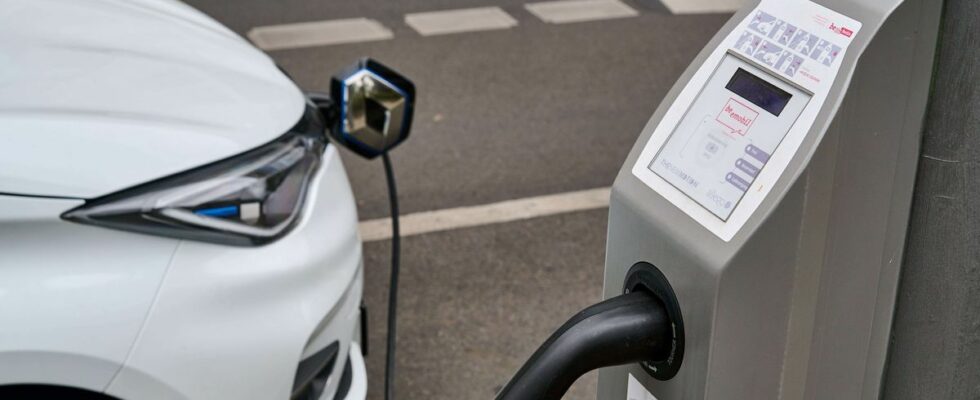The progress is there, even at a slower pace: electric cars accounted for a record 12.1% of new car sales over the year in the EU, compared to 9.1% in 2021, or 1.9% in 2019, according to figures released Wednesday by the Association of European Manufacturers (ACEA). But the road to transition is still long: within 12 years, these same electric cars are supposed to be the only new cars authorized for sale on the continent.
In an automobile market hampered since the pandemic by logistical problems, collapsed to the same level as in 1993, sales of electric vehicles increased by 28% compared to 2021, with more than 1.1 million vehicles sold. These sales were notably driven by the German market, where they accelerated at the end of the year, just before a drop in purchase bonuses. The electric ones were also very successful in Sweden or Belgium.
Italy, bad student
In Norway, a record four out of five new cars (79%) were electric. The kingdom, a major oil producer, aims to put an end to thermal engines for new registrations by 2025. That is ten years before the EU. The Italian market was the only one to put a brake on this engine in 2022 (-26.9%).
Non-rechargeable hybrids (diesel or gasoline) also continue to conquer the market (+8.6%) and now represent 22.6% of sales, with 2,089,653 cars sold. Sales of plug-in hybrids, these vehicles equipped with a combustion engine and a small rechargeable electric motor on a socket or terminal, marked time for the first time, with 874,182 vehicles sold (+ 1.2%). . In total, electrified cars (hybrid and 100% electric) have exceeded gasoline car sales since the end of 2021: these represented 36.4% of sales in 2022 (-12.8%, with nearly 3.3 million vehicles sold).
2,000 new terminals per week against 14,000 needed
The car, the main mode of transport for Europeans, represents a little less than 15% of CO2 emissions in the EU. “We move fast, unfortunately faster than other sectors. This transition cannot only concern the automotive sector”, underlined Tuesday the director general of Renault and new president of ACEA, Luca de Meo, during a press conference in Brussels.
He highlighted the need for charging stations, whose installations are limited to 2,000 per week in the EU, against the 14,000 necessary according to the industry, and with strong inequalities depending on the country. A problem of accessibility also arises, while electric cars are generally more expensive than their thermal cousins, and are still purchased mainly by “rich” households, admits the president of ACEA. And in a sector that is still juicy, no one wants to start a price war by lowering their prices

